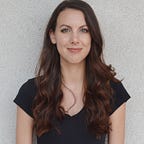MHS class launches students’ passion for science
A group of eight students traveled to NASA’s Kennedy Space Center in Florida.
Moorestown High School science teacher Richard Wilczewski is all about making his lessons real for students. So real, in fact, that the culmination of his engineering class was a trip to NASA’s Kennedy Space Center in Florida where eight students presented a year’s worth of engineering research to NASA professionals.
Wilczewski brought his Innovative Conceptual Engineering Design class to MHS four years ago after he was introduced to engineer Charles Camarda’s NASA program Epic Challenge. The program encourages students to research creative solutions to problems by putting themselves in an astronaut role as they find creative solutions to topics related to space exploration.
This year’s challenge asked students to delve into subjects related to colonizing Mars. Wilczewski said he lets his students have free rein regarding their topics. He has only one requirement: that the students are genuinely passionate about whatever topic they choose.
Once students decide on a topic, he has students delve into research. He said he’ll often bring in his colleagues and to try to help students connect their projects to other subjects. He said the project is all about finding solutions using real research techniques.
After the research phase, students set up experiments. Students interested in growing food on Mars have grown plants in the classroom. Some students have channeled their interest in psychology into psychological surveys distributed to the class.
Once the students have accumulated enough research and data, Wilczewski has students present their findings to the class — often without notice. Presentation skills are a vital component of his class, and he encourages students to ask questions of each other. He has students practice again and again until they feel comfortable because the researchers at NASA will not hold back when asking questions about their projects. By the end of the year, he has a class full of seasoned presenters.
“It’s just amazing to see the transformation in these kids,” Wilczewski said.
Wilczewski said they can present their findings in almost any form. One year, a group asked if they could do a interpretative dance. Wilczewski acquiesced. Another year, a student wanted to reinterpret Billy Joel’s “We Didn’t Start the Fire.” Wilczewski agreed — as long as the science was accurate.
In June, eight MHS students departed for a four-day trip to NASA to present their findings. While at Kennedy Space Center, students got a behind-the-scenes tour of NASA facilities. The following day, students set up their posters and stood before NASA researchers to present their findings.
Louis Spier, a senior in Wilczewski’s class this past year, said his research delved into growing food on Mars. He said he started experimenting with growing grass and tomatoes and measuring the production of carbon dioxide and oxygen by those plants in early January. In March, he started focusing his research on plants’ oxygen production and carbon dioxide consumption and how that could be used to support a Mars colony.
He said presenting in front of the NASA researchers was exciting and the feedback he received was extremely useful. Spier said, overall, the skills he learned in the class have set him up for his future.
“I learned more about collecting and analyzing data, writing engineering reports and how to present our findings,” Spier said. “I feel that having learned these skills in this class will help me a lot in the future when I go on to study aerospace engineering at Embry-Riddle Aeronautical University.”
Spier’s classmate, Griffin Conroy, a junior this past year, agreed the class taught him quite a bit about himself. He said from honing his presentation skills to developing research, the class pushed him.
“You find out a lot about yourself,” Conroy said. “I sort of came into this year not knowing what I wanted to do in the future and college, and this class gave me a sense of what I like.”
For the past three years, the Moorestown Education Association has provided the bulk of the funding for the trip through a grant. Due to budget constraints, the Innovative Conceptual Engineering Design class will not run next year, and the class will only run every other year from here on out. Wilczewski said he will have also have to begin fundraising for the trip from here on out as well, which makes transporting eight students to Florida quite a bit more difficult.
Wilczewski said his hope is the class not only becomes a yearly fixture at MHS but a part of required curriculum nationwide. He said because the engineering concepts are linked to topics students are passionate about, they retain the information beyond graduation. More importantly, however, students such as Spier often figure out where their passions lie.
“It’s just amazing to see the transformation in these kids,” Wilczewski said.
